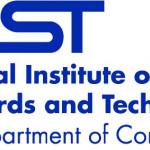- Industry: Technology
- Number of terms: 2742
- Number of blossaries: 0
- Company Profile:
The National Institute of Standards and Technology (NIST) — known between 1901 and 1988 as the National Bureau of Standards (NBS) — is a measurement standards laboratory and a non-regulatory agency of the United States Department of Commerce. The institute's official mission is to promote U.S. ...
A tree of minimum Euclidean distance connecting a set of points, called terminals, in the plane. This tree may include points other than the terminals, which are called Steiner points.
Industry:Computer science
A tree to index three dimensions. Each node has either eight children or no children.
Industry:Computer science
A tree where each node is split along all d dimensions, leading to 2<sup>d</sup> children.
Industry:Computer science
A tree where every subtree of a node has keys less than any other subtree of the node to its right. The keys in a node are conceptually between subtrees and are greater than any keys in subtrees to its left and less than any keys in subtrees to its right.
Industry:Computer science
A tree where no leaf is much farther away from the root than any other leaf. Different balancing schemes allow different definitions of "much farther" and different amounts of work to keep them balanced.
Industry:Computer science
A tree where the children of every node are ordered, that is, there is a first child, second child, third child, etc. An unordered tree may be thought of as a recursive bag, while an ordered tree is a recursive list.
Industry:Computer science
A tree whose subtrees differ in height by no more than one and the subtrees are height-balanced, too. An empty tree is height-balanced.
Industry:Computer science
A tree with a finite number of children at every node. As opposed to infinitary trees which may have an infinite number of children at some nodes.
Industry:Computer science
